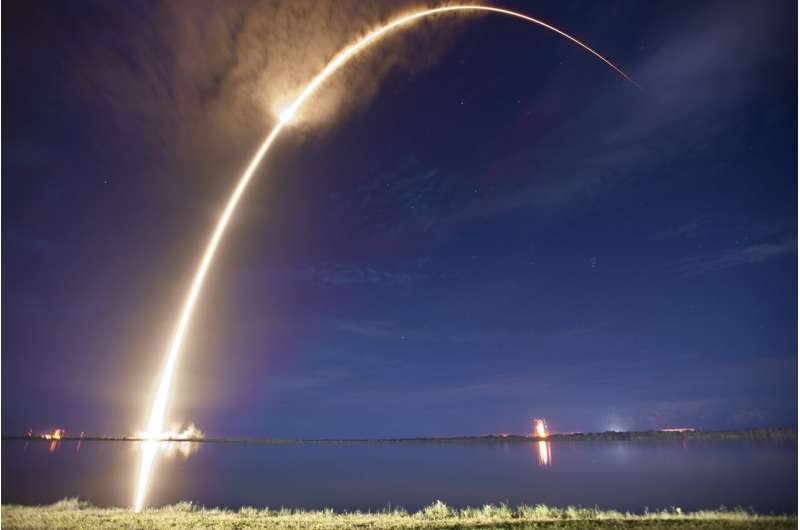Credit: Pixabay/CC0 Public Domain
It's been 11 days since SpaceX last lit up the Space Coast sky with a rocket launch, the longest run between launches in more than a year.
It's not for a lack of trying, though, but bad weather and a scrub as the countdown clock hit 0 last week led to SpaceX taking down a Falcon 9 rocket for a Starlink mission and switching it up with a Falcon 9 to launch a European TV satellite on Tuesday night.
The SES 24 mission flying the ASTRA 1P communication satellite for Luxembourg-based communications company SES is set to launch from Cape Canaveral Space Force Station's Space Launch Complex 40 during a window that runs from 5:35-8:24 p.m. The satellite will service TV markets in Germany, Spain and France.
Space Launch Delta 45's weather squadron forecasts only a 55% chance for good conditions, with liftoff winds and the presence of cumulus clouds a concern. The same issues remain in the event of a 24-hour scrub, worsening to only a 45% chance of good conditions.
If it does launch, the first-stage booster will be making its ninth flight and will aim for a landing downrange on the droneship Just Read the Instructions.
SpaceX last launched on the Space Coast on June 7, and the nearly 11 full days between launches would be the longest since a more-than-12-day run from April 7-19, 2023. It tried to launch from the Cape last week, but an issue with the Falcon 9 at ignition forced a scrub, and that mission's new launch date has yet to be announced.
The launch marks the 45th from either Canaveral or neighboring Kennedy Space Center for the year, with all except three coming from SpaceX.
The next launch from KSC could be SpaceX's first Falcon Heavy launch of the year, targeting a June 25 liftoff from Launch Pad 39-A during a two-hour window that opens at 5:16 p.m. Its payload is the GOES-U satellite for the National Oceanic and Atmospheric Administration that will next year take over the duties of watching the Atlantic basin for tropical and other dangerous weather.
2024 Orlando Sentinel. Distributed by Tribune Content Agency, LLC.























